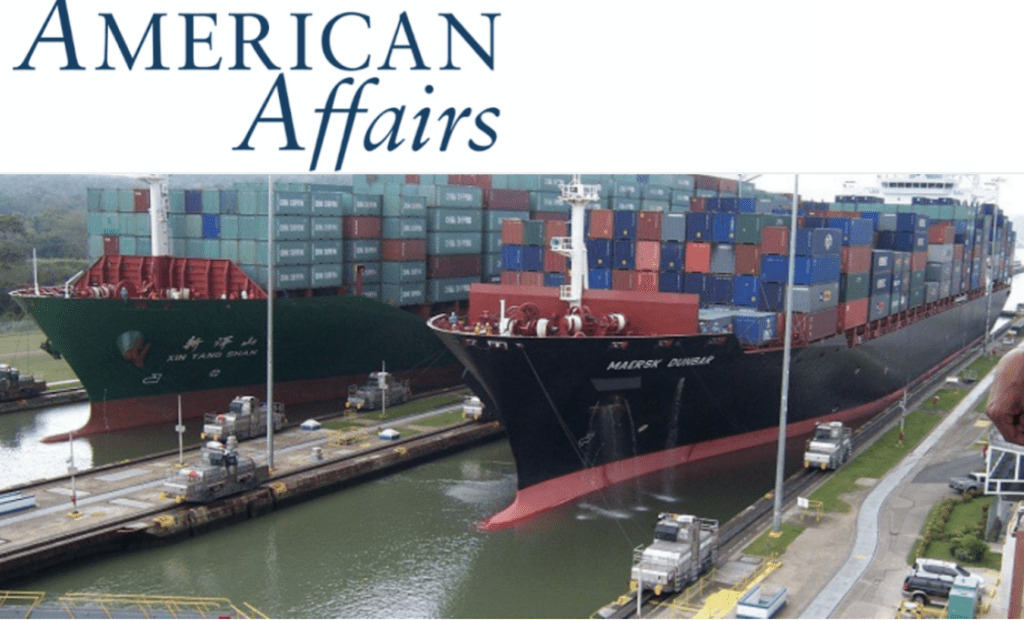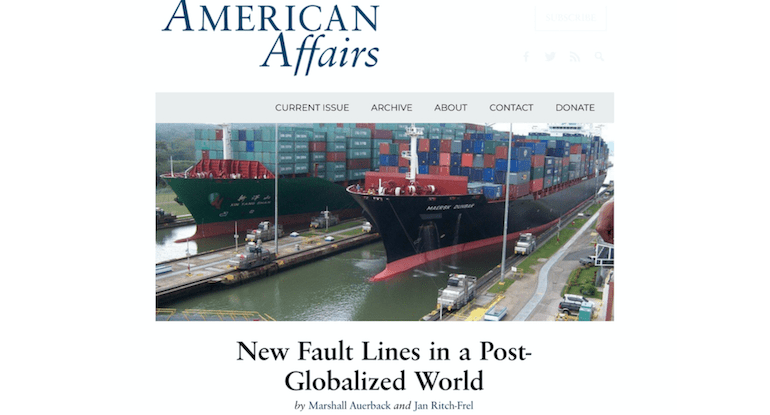The following is an excerpt of an essay that was originally published in the Winter 2020 edition of American Affairs journal.

New Fault Lines in a Post-Globalized World
By Marshall Auerback and Jan Ritch-Frel
November 20, 2020
The economic damage of the coronavirus pandemic has upended the global economic system and, just as importantly, cast out the neoliberal orthodoxy that dominated the industrialized world for the past forty years. But Covid-19 has only accelerated a process that was already well underway, impacting trade negotiations between China, the United States, and the European Union and spreading throughout the world’s largest economies. Although many defenders of the old order lament this trend, it is as significant a shift as the dawn of the era of global trade that began with the birth of the World Trade Organization (WTO).
Economists, politicians, and pundits are often tempted to see new economic patterns through the lens of the past. Thus, we are likely to hear that we are returning to nineteenth-century mercantilism or that we will see a revival of 1970s-style stagflation. But this historical view misunderstands our present moment; the motives now are different, and so are the outcomes.
Instead, what we are experiencing is the realization by governments of developed countries that new technologies enable them to expand or initiate new and profitable production capacity closer to or within their own markets. The savings in transportation, packaging, and security costs that come with domestic production, along with benefits to regional neighbors and to domestic workforces, will increasingly enable developed nations to compete with the price of goods produced through the current internationalized trade system. American politicians from Donald Trump to Elizabeth Warren are increasingly joined by a chorus of European and Asian politicians who see the long-term political benefit of supporting this transition.
Today, the “New World Order” looks old. Offshoring and global supply chains are out; regional and local production is in. Market fundamentalism is passé; regulation is the norm. National security considerations supersede untrammeled foreign investment flows. Public health is now more valuable than just-in-time supply systems. Stockpiling and building industrial capacity suddenly make more sense, which may have future implications for the recently revived antitrust debate in the United States.
Read the rest at American Affairs journal.
Marshall Auerback is a researcher at the Levy Economics Institute of Bard College, a fellow of Economists for Peace and Security, and a regular contributor to Economy for All, a project of the Independent Media Institute.
Jan Ritch-Frel is the executive director of the Independent Media Institute.
